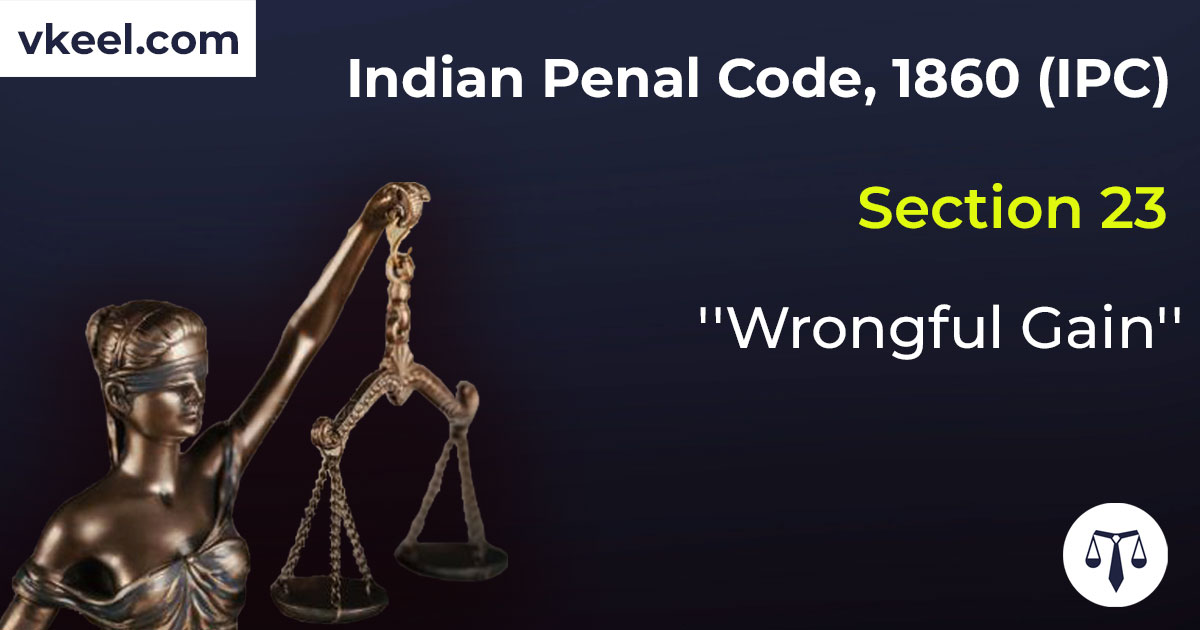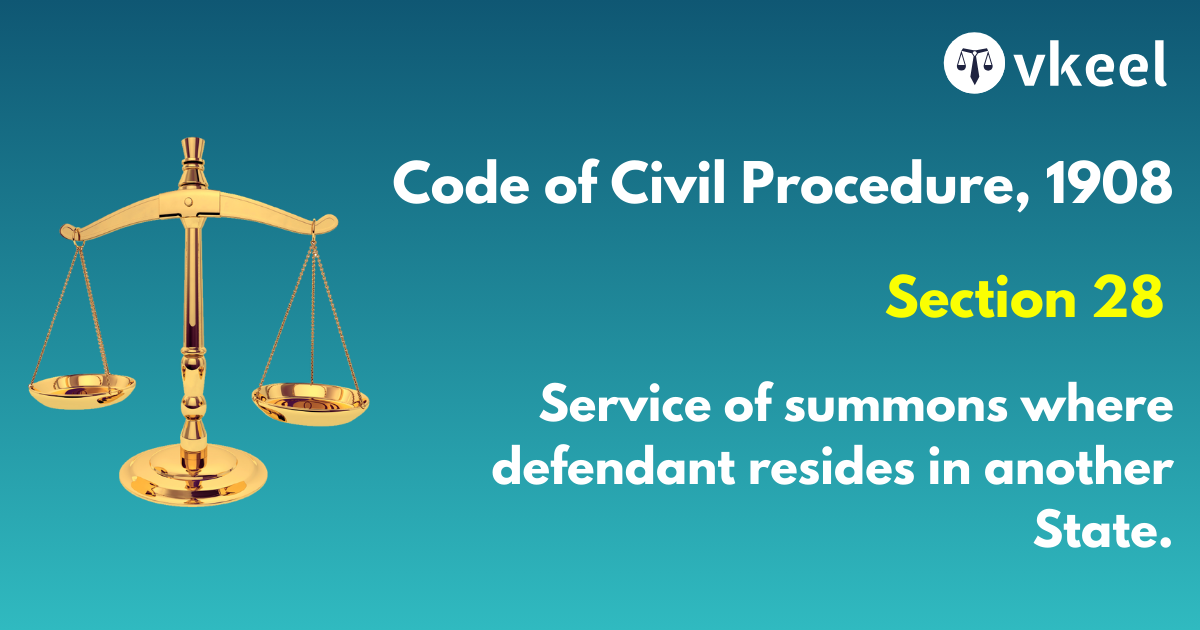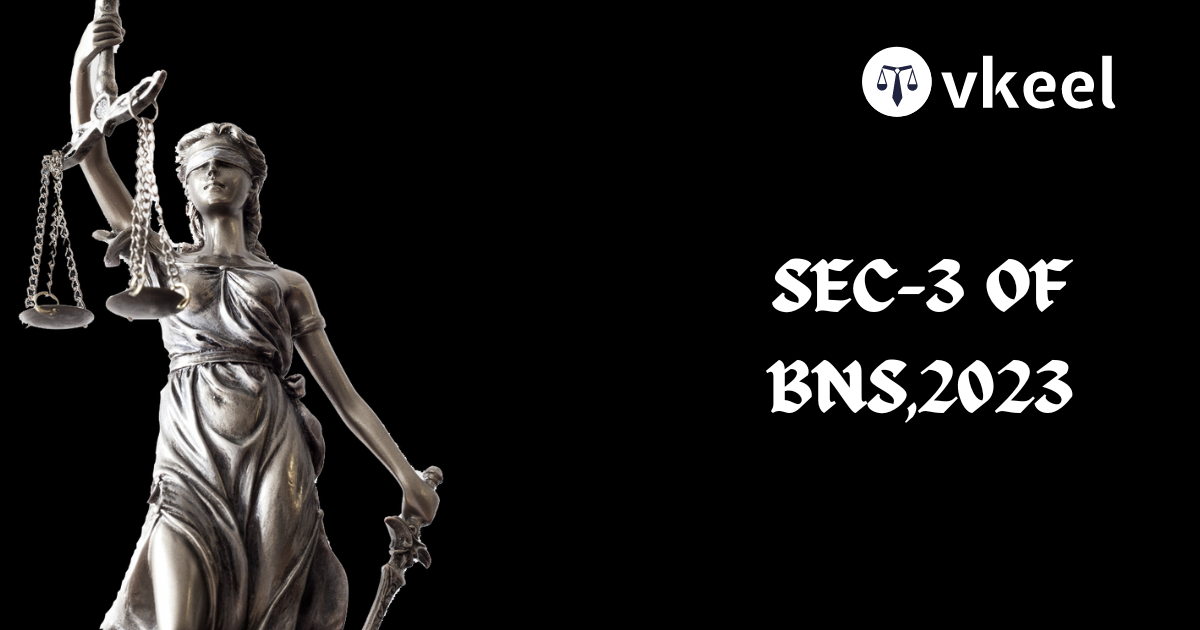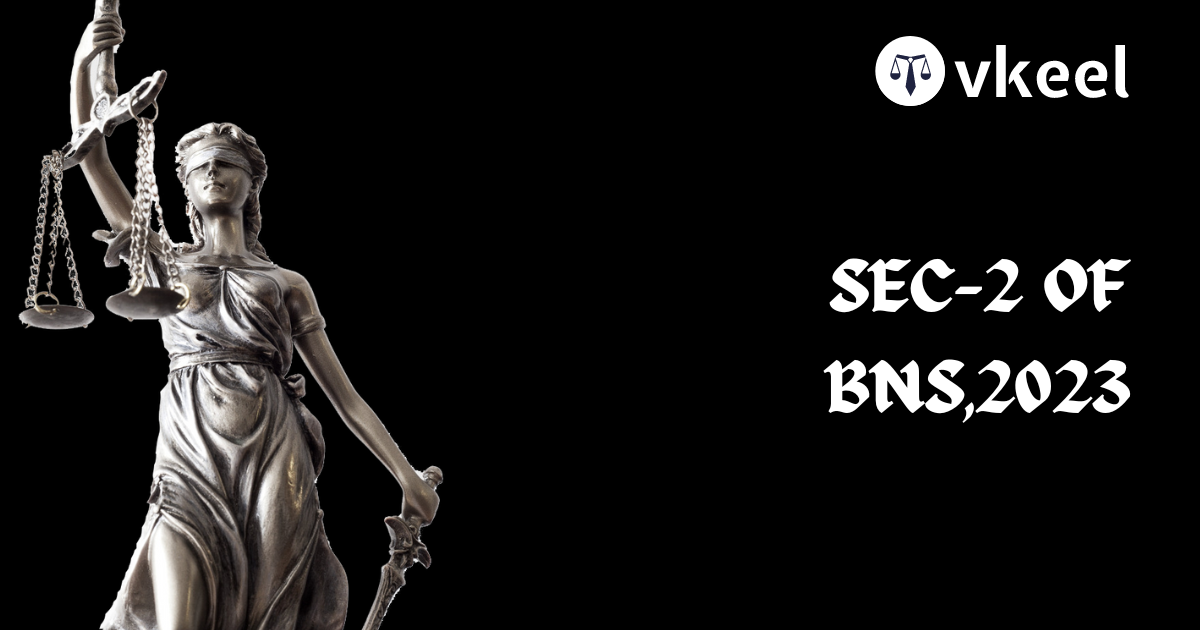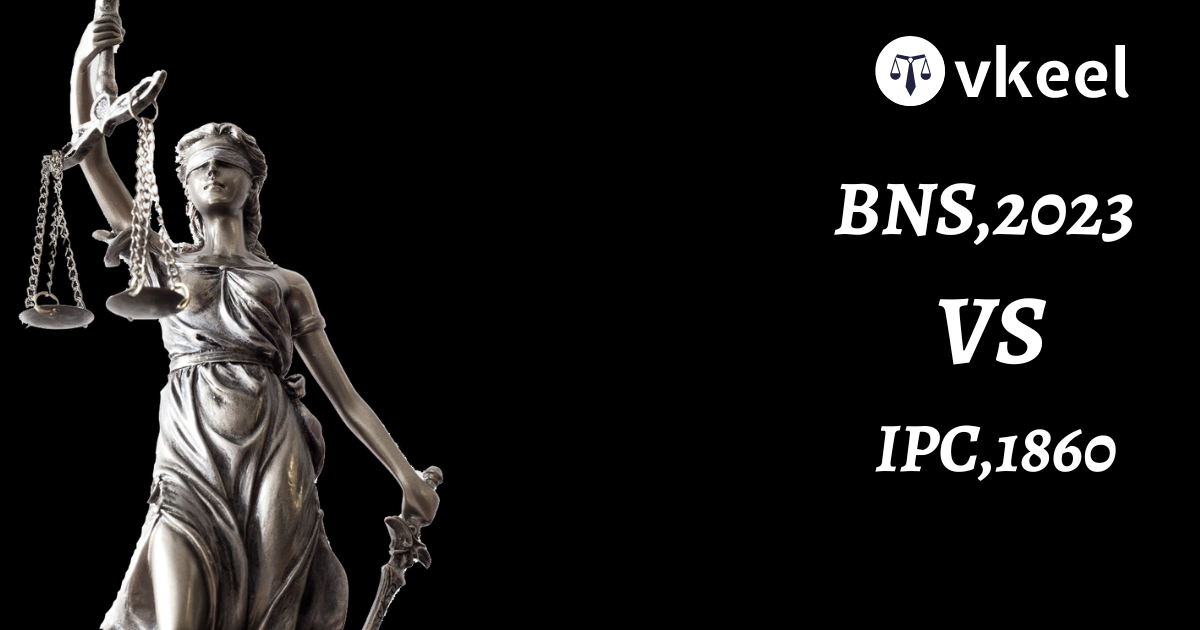Section 23 Indian Penal Code 1860 (IPC) – “Wrongful gain”
By Vkeel Team
Table of Contents
Description
“Section 23 Indian Penal Code 1860 (IPC)”
“Wrongful gain” is gain by unlawful means of property to which the person gaining is not legally entitled.
“Wrongful loss”.—”Wrongful loss” is the loss by unlawful means of property to which the person losing it is legally entitled.
Gaining wrongfully/Losing wrongfully.—A person is said to gain wrongfully when such person retains wrongfully, as well as when such person acquires wrongfully. A person is said to lose wrongfully when such person is wrongfully kept out of any property, as well as when such person is wrongfully deprived of property.
What is Section 23 of IPC?
Section 23 of the Indian Penal Code defines the term “Wrongful gain” and states that a person is said to have gained wrongfully when he acquires something which he is not legally entitled to, or when he acquires it by means of illegal or dishonest methods. The section further clarifies that if a person gains something that is lawfully his own, he cannot be said to have gained it wrongfully.
Sub-sections of Section 23 of IPC
Section 23 of IPC has two sub-sections:
- “Wrongful gain” is gain by unlawful means of property to which the person gaining is not legally entitled.
- “Wrongful loss” is the loss by unlawful means of property to which the person losing it is legally entitled.
Explanation of Sub-sections:
1. Wrongful gain:
As per the first sub-section of Section 23, a person is said to have gained wrongfully when he acquires something which he is not legally entitled to, or when he acquires it by means of illegal or dishonest methods. For instance, if a person steals money from someone or obtains it through fraud or deception, he has gained wrongfully.
2. Wrongful loss:
As per the second sub-section of Section 23, a person is said to have suffered a wrongful loss when someone unlawfully takes away or destroys his property or deprives him of his legal rights. For instance, if a person’s property is damaged or destroyed by someone else, he has suffered a wrongful loss.
Illustration of Section 23 of IPC
To understand the concept of “Wrongful gain” and “Wrongful loss” more clearly, let’s take an example:
Suppose, A takes B’s mobile phone without his permission. A then sells the mobile phone to C. Here, A has gained wrongfully as he has taken B’s property without his consent. C, who bought the mobile phone from A, has also gained wrongfully as he has acquired property which belonged to someone else.
On the other hand, B has suffered a wrongful loss as his mobile phone was taken away from him without his consent.
Penalties under Section 23 of IPC
Section 23 of IPC does not provide for any specific penalty for wrongful gain. However, it is often used in conjunction with other sections of the IPC to determine the appropriate punishment for a particular crime. For instance, if a person gains wrongfully by committing theft, he may be punished under Section 378 of IPC which deals with theft. The punishment for theft is imprisonment for a term which may extend to three years, or with fine, or with both.
Similarly, if a person causes wrongful loss to someone else, he may be punished under Section 378 of IPC which deals with theft, or under Section 427 of IPC which deals with mischief causing damage to property. The punishment for mischief causing damage to property is imprisonment for a term which may extend to two years, or with fine, or with both.
Conclusion
Section 23 of the Indian Penal Code, 1860 defines the term “Wrongful gain”. It states that a person is said to have gained wrongfully when he acquires something which he is not legally entitled to, or when he acquires it by means of illegal or dishonest methods. The section further clarifies that if a person gains something that is lawfully his own, he cannot be said to have gained it
Desctiption Source: indiacode
Disclaimer:
The information provided in the article is for general informational purposes only, and is not intended to constitute legal advice or to be relied upon as a substitute for legal advice. Furthermore, any information contained in the article is not guaranteed to be current, complete or accurate. If you require legal advice or representation, you should contact an attorney or law firm directly. We are not responsible for any damages resulting from any reliance on the content of this website.

